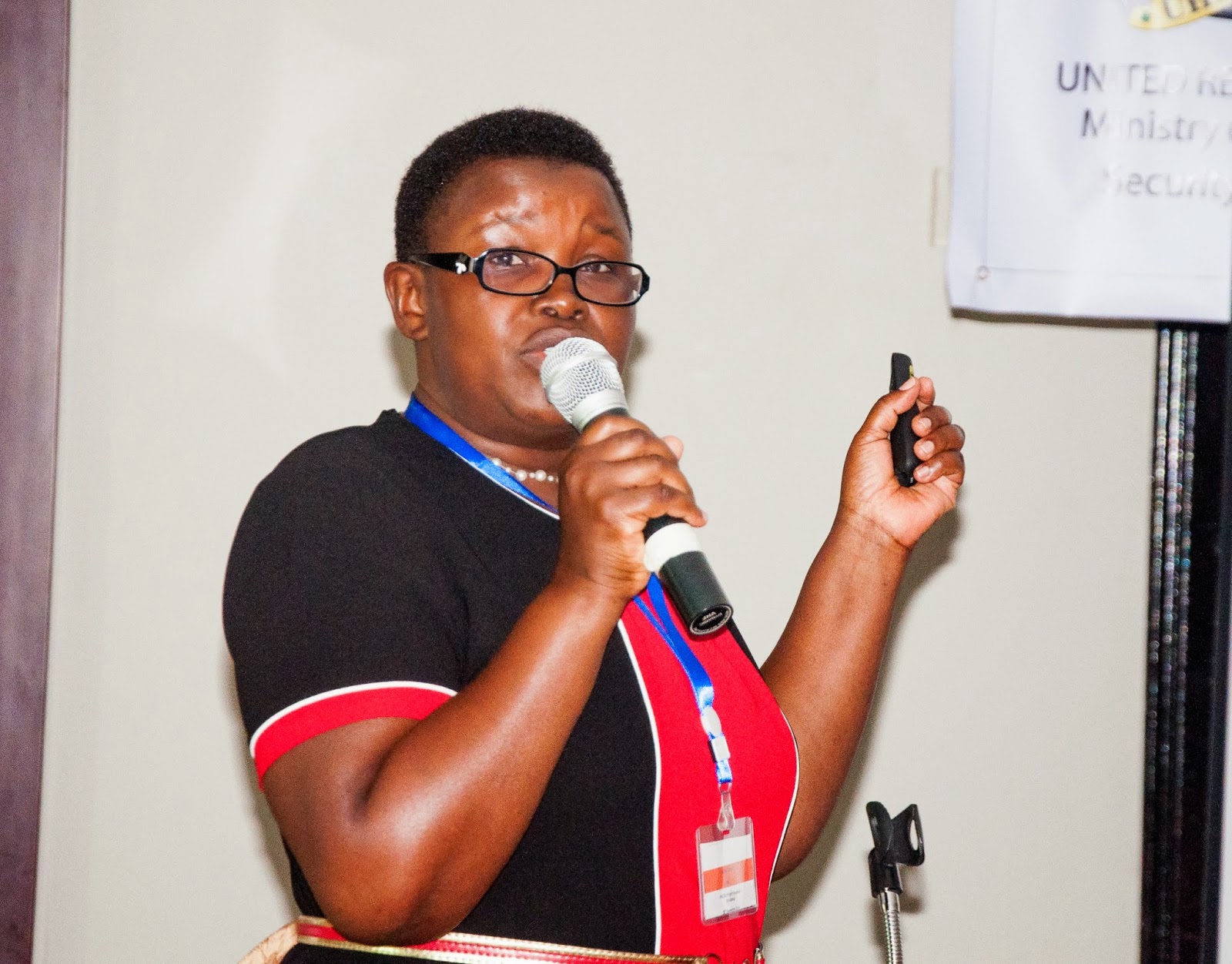 |
| Ms Madete, Deputy PS, Vice-President's Office at the launch |
The four-year project, Policy Action for Climate Change
Adaptation (PACCA), led by the International Institute of Tropical
Agriculture (IITA) and funded by the CGIAR Research Program on Climate Change,Agriculture and Food Security (CCAFS) was recently launched in Dar es Salaam, Tanzania.
 | ||
| Dr Yamungu, Agric ministry deputy PS welcomed the initiative |
The project which seeks to enhance the capacity of the Tanzania
Government to develop and implement policies on climate change adaptation in
relation to food security is being implemented in both Kenya
and Tanzania. In Tanzania the lead partner is the Environmental Management Unit
(EMU) of the Ministry of Agriculture, Food Security and Cooperatives.
The project was officially launched by the Deputy Permanent
Secretary in the Vice President’s Office Ms Angelina E.A. Madete at a stakeholders’
meeting that brought together different actors working in the area of climate
change adaptation from the government, NGOs, and international and national
research institutes.
 |
| Dr Ampaire giving an overview of the PACCA project |
“We are all aware of the dangers climate change poses to our
country. We have all witnessed heavy rains and floods; prolonged and severe
droughts, and landslides. We need to develop and implement integrated
strategies expeditiously in the country,” she said.
The project was also welcomed by the Deputy Permanent
Secretary in the Ministry of Agriculture, Food Security and Cooperatives, Dr Yamungu Kayandabila, who officiated the closing ceremony of the
workshop. He assured all the project partners of the full support of his
ministry to tackle climate change and food security issues in the country.
The project coordinator, Dr Edida Ampaire from IITA Uganda, said
the project seeks to strengthen the cooperation between the scientific
community and policy actors in formulating policies on climate change.
 |
| A cross section of the participants at the event |
“The aim of the project is to understand the policy making
and implementation processes in the area of climate change and food security in
Tanzania and Uganda, identify any gaps, and suggest ways to overcome them. It
will also identify appropriate mechanisms to facilitate generation and sharing
of knowledge among the different actors working in the area of climate change
within and between the two countries,” she said.
During the workshop, the participants identified some of the
gaps and areas that the project should address to strengthen climate change
policies in Tanzania. Top of the list was the lack of a comprehensive policy on
climate change in the country. Currently, issues on climate change are handled
under the environmental policy of 2004 under the Vice President’s Office and in
the Environmental Management Unit (EMU of the Agriculture Ministry.
 |
| Participants at the PACCA-Tanzania chapter launch |
Other challenges identified were a general lack of adequate
coordination of the different actors working on climate change and food
security issues, lack of sharing of knowledge and information, and a general
low level of awareness of the importance of climate change across various
sectors from the policy makers to the general public. Another gap was linked to
inadequate human and financial resources put aside for climate change. The
participants also identified the root causes of these problems and made
recommendations for further action.
.gif)



